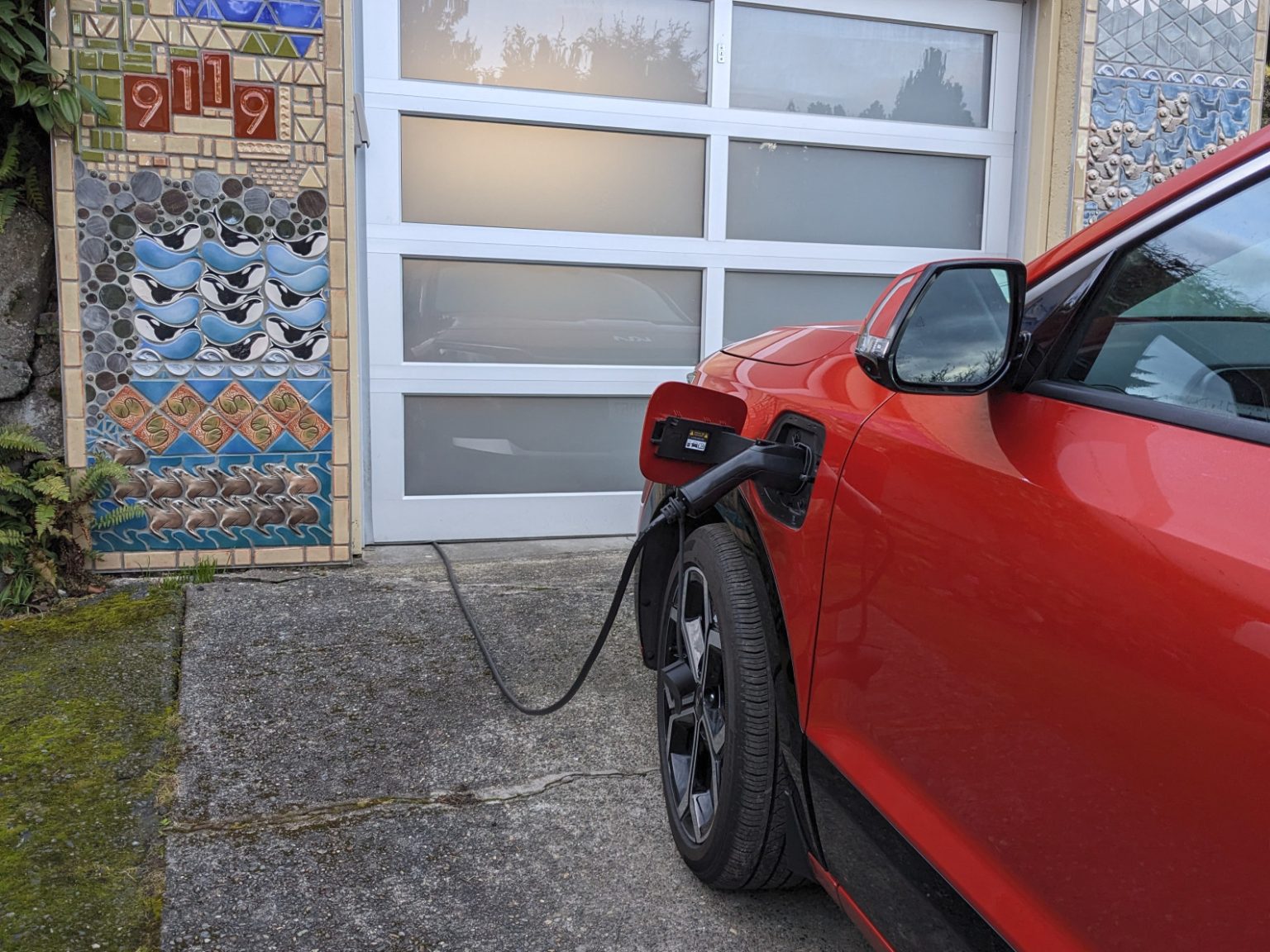Washington state is seeing a significant increase in the adoption of electric vehicles (EVs) and plug-in hybrids, with 19% of new cars registered in the state in 2023 being electric, nearly double the U.S. average. This marks a jump from 13% in 2022 and positions Washington just behind California, which recorded nearly 26% of low-carbon car sales. Data from the Alliance for Automotive Innovation shows that 112 models of EVs and plug-ins were sold in the U.S. in the same year. In total, there are over 173,000 low-carbon vehicles registered in Washington, according to the Department of Licensing.
Despite the increasing sales of EVs in Washington, experts warn that growth in the electric vehicle market in the U.S. and globally is slowing down. Lagging Tesla sales are a significant factor in this slowdown domestically, as the company appears to be abandoning plans to produce an inexpensive model. Additionally, American automakers such as GM and Ford are scaling back their EV manufacturing efforts. California’s influence on Washington is evident, as the state has mandated that all new vehicles sold in Washington must be zero carbon emissions by 2035, starting with an 8% sales target for 2025 vehicle models, a goal that the state has already exceeded.
Joel Creswell, manager of the Climate Pollution Reduction program, noted that momentum for zero-emission cars and trucks has been gradually building over the years, culminating in 2023 when car buyers in Washington showed their readiness to transition from gas-powered vehicles to electric ones. To support the growth of the EV market, investments from the state’s Climate Commitment Act and federal funding are being utilized to expand the EV charging network in Washington. However, there may be obstacles ahead as an initiative called I-2117 on the November ballot seeks to eliminate the funding created by the climate act by abolishing a program that requires polluters to pay for their carbon emissions.
The transition to electric vehicles in Washington signifies a shift towards more sustainable transportation options, aligning with efforts to reduce greenhouse gas emissions and combat climate change. This shift is also evident in the requirement for all new vehicles sold in the state to be zero carbon emissions by 2035, encompassing passenger cars, light-duty vehicles, and medium-duty vehicles. By setting these targets and achieving significant sales of EVs, Washington is positioning itself as a leader in the adoption of low-carbon transportation solutions.
The growth of the EV market in Washington reflects a broader trend towards cleaner and more sustainable modes of transportation, driven by both consumer demand and government regulations. Investments in infrastructure, such as expanding the EV charging network, are critical to supporting the increasing number of electric vehicles on the road. While challenges remain, such as the slowdown in EV sales and potential policy changes, the momentum for zero-emission vehicles in Washington is strong, indicating a promising future for the state’s transition to a greener transportation system.
Overall, the data from Washington state reveals a positive trend towards the adoption of electric vehicles and plug-in hybrids, with a significant increase in sales and registrations of low-carbon vehicles. By requiring all new vehicles to be zero carbon emissions by 2035 and making investments in EV infrastructure, Washington is paving the way for a more sustainable and environmentally friendly transportation system. Despite challenges and potential obstacles, the state’s commitment to reducing greenhouse gas emissions through the promotion of electric vehicles demonstrates a proactive approach to addressing climate change and promoting clean energy alternatives.


